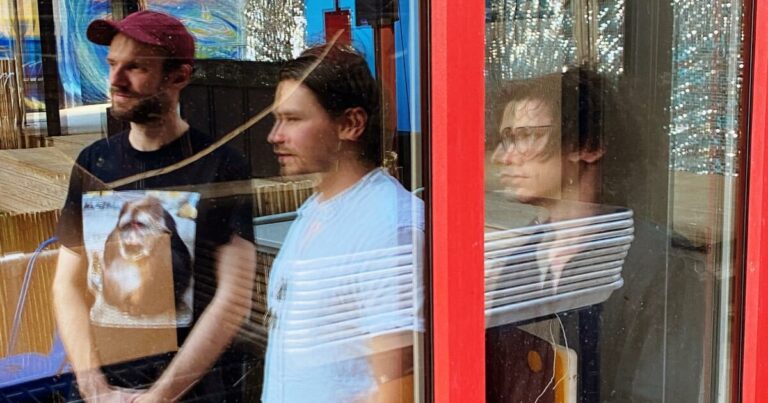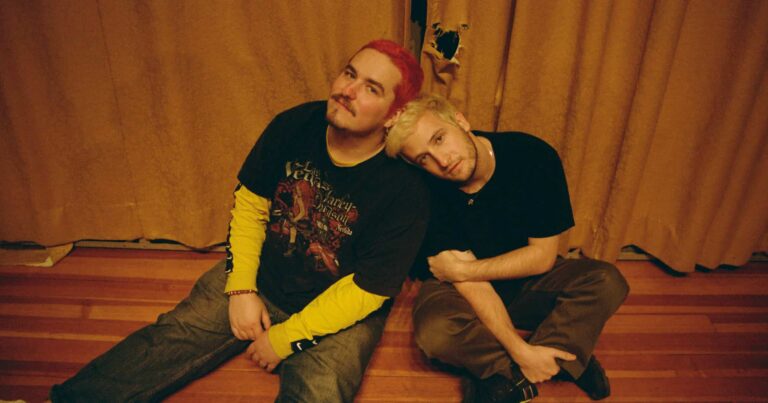Layered necklaces have become a must-have in modern fashion, offering a perfect balance of elegance, creativity, and individuality. This timeless trend allows you to mix and match different chains, pendants, and styles, creating a look that is both chic and personal. Whether you’re dressing for a casual day out, a sophisticated evening, or simply elevating your everyday wear, mastering the art of layering necklaces will give your outfit an instant upgrade.
In this guide, we’ll explore how to layer necklaces like a pro, what styles to choose, and how to incorporate meaningful pieces to make the look entirely your own. Whether you’re a minimalist or someone who loves bold accessories, layered necklaces allow you to express yourself effortlessly.
Why Layered Necklaces Are a Timeless Trend
Layering necklaces has gained popularity for its versatility and ability to tell a story. Unlike single statement pieces, layers add depth, texture, and personality to your outfit. Here’s why this trend remains a staple in jewelry fashion:
- Express Individuality: Layering necklaces lets you combine pieces that reflect your personal style. Whether it’s a delicate chain, a bold pendant, or a meaningful charm, the layered look is uniquely yours.
- Adds Depth to Any Outfit: A few strategically layered necklaces can turn even the simplest outfit—like a plain white tee and jeans—into something polished and stylish.
- Versatile for Any Occasion: Whether it’s for a casual brunch, an office look, or a formal dinner, layered necklaces work for every setting. You can mix subtle chains for daytime wear or bold pendants for evening events.
- Personal Touch: Incorporating meaningful pieces—like engraved pendants, birthstones, or symbolic charms—adds an emotional layer to your look. For example, mom necklaces or customized jewelry with initials can make your layers both stylish and sentimental.
The Basics of Layering Necklaces
Layering necklaces may seem effortless when you see it on Instagram or in magazines, but achieving a balanced and stylish look requires a little bit of know-how. Here are the fundamentals:
1. Choose the Right Lengths
The key to perfect layering is selecting necklaces of varying lengths to create depth and avoid tangling. Here’s a breakdown:
- Chokers (14-16 inches): Sit close to the neck and act as the foundation for layering.
- Princess Length (18-20 inches): Rest near the collarbone, perfect for showcasing pendants.
- Matinee Length (22-24 inches): Hang lower on the chest, adding structure to the layers.
- Long Chains (30+ inches): Perfect for adding drama or anchoring the look with a bold pendant.
2. Mix Different Chain Styles
To keep your layers interesting, mix chain styles and textures. For example:
- A delicate cable chain paired with a chunky curb chain adds contrast.
- Add a rope chain or box chain for an element of texture and variety.
The combination of thin and bold chains creates a visually appealing balance without overwhelming the look.
3. Add Meaningful Pendants
The beauty of layered necklaces lies in their ability to tell a story. Incorporating pendants with personal or symbolic meaning makes your layers stand out.
- Engraved Pendants: Names, initials, or dates that hold sentimental value.
- Birthstones: Celebrate special people in your life or add a colorful touch.
- Symbolic Charms: Items like hearts, crosses, or celestial symbols can reflect your beliefs, passions, or aspirations.
- Angel Numbers: These meaningful numerical sequences have gained popularity as spiritual symbols, making them an elegant and thoughtful pendant option. For example, seeing numbers like “111” or “333” can signify balance, manifestation, or spiritual alignment.
Pro Tip: When using multiple pendants, vary their sizes to create balance—choose a large statement pendant for the longest chain and smaller charms for shorter ones.
How to Style Layered Necklaces for Different Looks
Layered necklaces can be adapted to suit various outfits and occasions. Here’s how to style them for different looks:
1. Casual and Everyday Wear
For a relaxed, effortless look, stick to minimal chains and small pendants:
- Pair a thin choker with a mid-length chain and a small charm or pendant.
- Stick to classic metals like gold or silver for a polished look.
- A simple tee, denim jacket, and layered necklaces are all you need for casual chic.
2. Office-Ready Elegance
For workwear, opt for subtle layers that complement professional attire:
- Combine a delicate choker with a medium-length chain featuring a simple bar pendant or initial charm.
- Avoid chunky or overly ornate pieces that can feel distracting.
- Pair your necklaces with a tailored blazer or blouse for a refined finish.
3. Evening Glam
Elevate your look for formal occasions with bold layers and statement pieces:
- Start with a choker as the base and add longer chains with eye-catching pendants.
- Combine materials like gold, pearls, or gemstones for an opulent vibe.
- Wear layered necklaces with an off-the-shoulder dress or deep neckline to highlight the jewelry.
Pro Tip: Layered necklaces work beautifully with V-necks and scoop-neck tops, as they frame the necklaces and allow each layer to shine.
Styling Layered Necklaces for Different Personalities
Layered necklaces are versatile, allowing you to showcase your personality through the combination of pieces. Here are some tailored suggestions based on different personal styles:
1. The Minimalist
If you prefer a clean, understated aesthetic, less is more.
- Stick to two to three delicate chains in varying lengths.
- Opt for simple pendants like small discs, initials, or fine bar necklaces.
- Silver, white gold, or rose gold chains work perfectly for a minimalist touch.
Perfect Pairing: A fine choker with a thin princess-length chain featuring a single pendant like an initial or tiny gemstone. This creates an effortlessly polished look.
2. The Bohemian Spirit
For those who embrace a free-spirited, earthy vibe:
- Combine a mix of textures and materials, such as rope chains, beaded necklaces, and pendants with nature-inspired elements like feathers, moons, or florals.
- Incorporate gemstones, crystals, or angel numbers for a touch of spiritual energy.
Perfect Pairing: A chunky mid-length chain, paired with a longer gemstone pendant or symbolic charm like an angel number sequence (e.g., 444 for protection and balance). Add a layered piece with small beads for a boho-chic aesthetic.
3. The Statement Maker
For those who love standing out:
- Layer bold, chunky chains in different textures and sizes.
- Add a large pendant as the focal point, such as a medallion or ornate locket.
- Don’t be afraid to mix metals—gold and silver together can add a striking modern edge.
Perfect Pairing: Start with a thick choker chain, add a medium-length curb chain, and finish with a dramatic pendant necklace that demands attention. Pair this look with a monochromatic outfit for maximum impact.
4. The Sentimentalist
If you love meaningful jewelry that tells a story:
- Choose necklaces with initials, names, or birthstones of loved ones.
- Opt for custom pieces that hold significant memories or symbols.
- Pieces like a mother daughter jewelry set are perfect for family-oriented women, symbolizing love and connection in an elegant, wearable way.
Perfect Pairing: A personalized bar necklace engraved with a special date or name paired with a mid-length chain featuring a birthstone pendant. A set like this not only adds style but also holds emotional value.
How to Care for Layered Necklaces
Layered necklaces look beautiful, but their delicate nature means they require proper care to ensure longevity and shine. Here are some tips to keep them in perfect condition:
- Prevent Tangling
- Store each necklace separately in anti-tangle pouches or jewelry organizers.
- When layering, clasp the chains at slightly different lengths to reduce tangling throughout the day.
- Clean Regularly
- Wipe necklaces with a soft, lint-free cloth after wearing them to remove sweat, oils, and dirt.
- Use mild soap and warm water to clean metal necklaces occasionally, and always dry them thoroughly before storing.
- Avoid Chemicals
- Remove layered necklaces before swimming, showering, or applying lotions and perfumes. Chemicals can tarnish the metal and weaken delicate chains.
- Rotate Your Pieces
- Give your jewelry a break to avoid constant wear and tear. Alternate between your favorite layered looks to keep the chains in pristine condition.
Pro Tip: Invest in necklace extenders to adjust lengths easily and create new layering combinations without buying additional pieces.
Meaningful Layered Necklace Gift Ideas
Layered necklaces make for thoughtful gifts, especially when they include personalized touches that reflect the recipient’s personality or relationships. Here are some ideas to consider:
1. Personalized Initial Necklace Set
A delicate layered look featuring initials of loved ones is both trendy and sentimental. It’s perfect for mothers, partners, or best friends.
2. Birthstone Layered Necklaces
Birthstones are a beautiful way to celebrate someone’s birthday while adding a personal flair. Combine multiple pendants to represent family members or significant milestones.
3. Mother Daughter Jewelry Set
Matching layered necklaces that symbolize the bond between a mother and daughter make for a timeless and emotional gift. Look for interlocking hearts, infinity symbols, or engraved pieces to add extra meaning.
4. Angel Number Necklaces
Necklaces featuring angel numbers make powerful gifts for loved ones interested in spirituality or personal growth. Whether it’s “111” for manifestation or “777” for luck, these numbers add a layer of meaning to already beautiful pieces.
5. Customized Date or Coordinates
Engraving a significant date (like an anniversary or birth) or coordinates of a special place creates a one-of-a-kind keepsake.
Gift Tip: Pair layered necklaces with a handwritten note explaining their significance for an extra-special touch.
Mastering the Art of Layered Necklaces
Layered necklaces are more than just a trend—they’re a reflection of personal style, creativity, and individuality. Whether you’re drawn to delicate, sentimental pieces or bold, statement-making chains, the art of layering allows you to tell your story through jewelry.
From everyday elegance to bohemian vibes and meaningful gifts like a mother daughter jewelry set, layered necklaces have a timeless appeal that can elevate any outfit. By combining different lengths, textures, and pendants, you can create a look that’s uniquely yours.
Embrace this trend with confidence, experiment with new styles, and don’t be afraid to add personal touches that make your layered necklaces truly special. After all, the best accessories are the ones that hold meaning, tell stories, and make you feel like your most authentic self.










